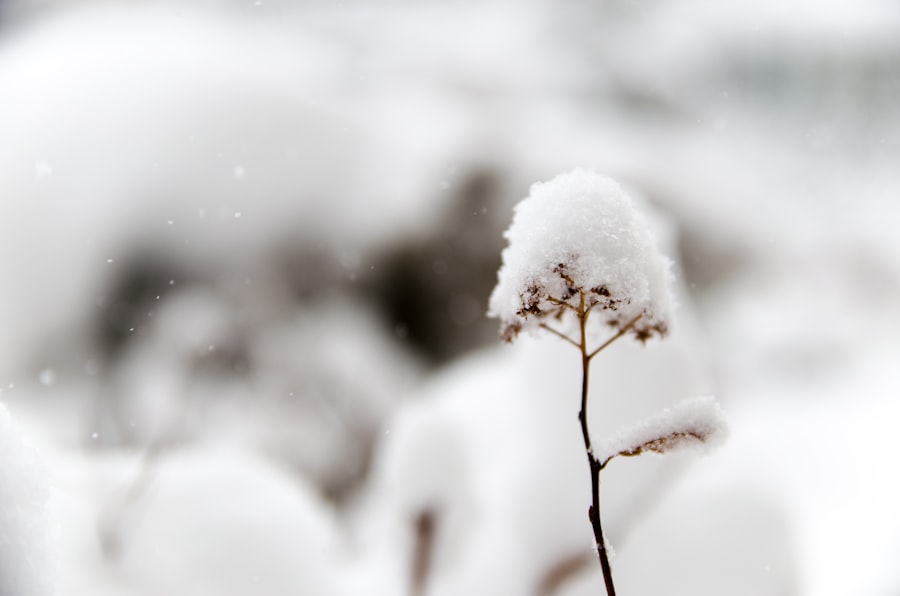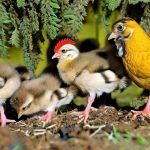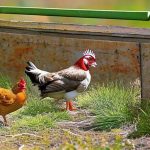Chickens are generally resilient birds, but cold weather can adversely affect their health and productivity. When temperatures drop, chickens may experience stress, reduced egg production, and health problems like frostbite. Understanding these effects is essential for maintaining chicken welfare during winter.
As warm-blooded animals, chickens can regulate their body temperature to some extent. In cold conditions, they naturally fluff their feathers to create an insulating air layer and huddle together for warmth. However, extreme cold can overwhelm these natural defenses, leading to stress, decreased egg production, and potential illness.
Chicken owners should be vigilant for signs of cold stress, including shivering, lethargy, and reduced appetite. Cold weather can also cause frostbite in chickens, particularly affecting their combs, wattles, and feet when exposed to freezing temperatures for extended periods. Frostbitten areas may become swollen, discolored, and painful, with severe cases potentially leading to tissue death.
Recognizing the impact of cold weather on chickens enables owners to take proactive measures to protect their birds. This includes preparing the coop, providing adequate nutrition, and shielding chickens from harsh elements to ensure their health and well-being during winter months.
Table of Contents
- 1 Preparing the coop for winter
- 2 Providing adequate nutrition for chickens in cold weather
- 3 Protecting chickens from frostbite and other cold-related health issues
- 4 Managing water sources in freezing temperatures
- 5 Monitoring chicken behavior and health during cold weather
- 6 Tips for keeping chickens warm and comfortable in winter
- 7 FAQs
Key Takeaways
- Cold weather can impact chickens by reducing egg production, increasing their need for energy, and making them more susceptible to health issues.
- Preparing the coop for winter involves insulating walls, sealing drafts, providing adequate ventilation, and using bedding to keep chickens warm and dry.
- Providing adequate nutrition for chickens in cold weather includes increasing their feed to meet their energy needs and offering high-quality, high-protein feed to support their immune system.
- Protecting chickens from frostbite and other cold-related health issues involves checking for signs of frostbite, applying petroleum jelly to combs and wattles, and providing a warm, dry environment.
- Managing water sources in freezing temperatures requires using heated waterers, checking water sources frequently, and offering warm water to prevent dehydration.
- Monitoring chicken behavior and health during cold weather involves observing for signs of distress, ensuring they are active and eating, and seeking veterinary care if necessary.
- Tips for keeping chickens warm and comfortable in winter include using heat lamps, providing roosting bars, and offering extra bedding for insulation.
Preparing the coop for winter
Insulation and Ventilation
Preparing the coop for winter is essential for ensuring that chickens stay warm and healthy during the colder months. One of the first steps in preparing the coop is to insulate it to keep out drafts and retain heat. This can be done by adding extra bedding, such as straw or wood shavings, to the coop floor. It’s also important to ensure that the coop is well-ventilated to prevent moisture buildup, which can lead to respiratory issues in chickens. Ventilation should be located high up in the coop to allow for air circulation without creating drafts at ground level.
Roosting Space and Comfort
Another important aspect of preparing the coop for winter is providing adequate roosting space for the chickens. Chickens naturally roost at night to keep warm, so it’s important to ensure that there is enough space for all of the birds to roost comfortably. Roosting bars should be wide enough for chickens to perch on without their feet getting cold. It’s also a good idea to add extra roosting bars closer to the ceiling of the coop, where it will be warmer.
Additional Preparations
Finally, it’s important to check the coop for any potential entry points for predators or drafts and make any necessary repairs before winter sets in. Coop windows should be covered with clear plastic to allow sunlight in while keeping out cold drafts. By taking these steps to prepare the coop for winter, chicken owners can help ensure that their birds stay warm and healthy during the colder months.
Providing adequate nutrition for chickens in cold weather

Providing adequate nutrition for chickens in cold weather is crucial for ensuring their health and well-being. When temperatures drop, chickens require more energy to stay warm, so it’s important to adjust their diet accordingly. One way to do this is by increasing their protein intake.
Protein is essential for maintaining body heat and supporting overall health in chickens. High-protein treats such as mealworms or black soldier fly larvae can be added to their diet to help meet their increased energy needs during the winter months. In addition to increasing protein intake, it’s also important to ensure that chickens have access to a balanced diet that includes essential vitamins and minerals.
This can be achieved by providing them with a high-quality layer feed that is specifically formulated for laying hens. Layer feed contains the right balance of nutrients to support egg production and overall health in chickens. It’s also important to ensure that chickens have access to fresh water at all times, as dehydration can lead to health issues in cold weather.
To prevent water from freezing, heated waterers or frequent water changes can be used. Finally, it’s important to monitor the body condition of chickens throughout the winter months and adjust their diet as needed. If chickens are losing weight or showing signs of malnutrition, it may be necessary to increase their feed rations or provide additional supplements.
By providing adequate nutrition for chickens in cold weather, owners can help ensure that their birds stay healthy and maintain their egg production during the winter months.
Protecting chickens from frostbite and other cold-related health issues is essential for ensuring their well-being during the winter months. One of the most effective ways to protect chickens from frostbite is by providing them with a well-insulated coop that is free from drafts. As mentioned earlier, adding extra bedding and ensuring proper ventilation can help keep the coop warm and dry, reducing the risk of frostbite.
It’s also important to check chickens regularly for signs of frostbite, especially on their combs, wattles, and feet. If any signs of frostbite are detected, affected areas should be gently warmed up and protected from further exposure to cold temperatures. In addition to protecting chickens from frostbite, it’s important to be vigilant for other cold-related health issues that can affect chickens during the winter months.
Respiratory issues are common in cold weather due to poor ventilation and moisture buildup in the coop. To prevent respiratory issues, it’s important to keep the coop clean and dry and ensure proper ventilation. Additionally, it’s important to monitor chickens for signs of illness such as coughing, sneezing, or nasal discharge and seek veterinary care if needed.
Another potential health issue in cold weather is dehydration. Chickens may drink less water in cold temperatures, leading to dehydration and related health issues. To prevent dehydration, it’s important to ensure that chickens have access to fresh water at all times and take steps to prevent water from freezing.
By taking proactive measures to protect chickens from frostbite and other cold-related health issues, owners can help ensure that their birds stay healthy and comfortable during the winter months.
Managing water sources in freezing temperatures
Managing water sources in freezing temperatures is crucial for ensuring that chickens have access to fresh water at all times during the winter months. One way to manage water sources in freezing temperatures is by using heated waterers. Heated waterers are designed to prevent water from freezing by keeping it at a constant temperature.
They are available in various sizes and styles, including heated waterers that sit on the ground or hang from a hook inside the coop. Another option for managing water sources in freezing temperatures is by using heated bases or heated pads underneath traditional waterers. These devices are designed to keep water from freezing by providing a constant source of heat from below.
They can be used with plastic or metal waterers and are available in different sizes to accommodate various types of waterers. In addition to using heated waterers or bases, another option for managing water sources in freezing temperatures is by using insulated waterers. Insulated waterers are designed with double-walled construction and added insulation to help prevent water from freezing in cold temperatures.
They are available in various sizes and styles and can be used both inside and outside the coop. Finally, another option for managing water sources in freezing temperatures is by using heated buckets or troughs. These devices are designed with built-in heating elements to prevent water from freezing and are available in different sizes to accommodate various flock sizes.
By using these various methods for managing water sources in freezing temperatures, chicken owners can ensure that their birds have access to fresh water at all times during the winter months.
Monitoring chicken behavior and health during cold weather

Observing Activity Levels and Interactions
Monitoring chicken behavior and health during cold weather is crucial for ensuring they stay healthy and comfortable during the winter months. One way to monitor chicken behavior is by observing their activity levels and interactions with each other. In cold weather, chickens may huddle together more often to share body heat and stay warm. They may also be less active overall as they conserve energy to stay warm.
Monitoring Eating and Drinking Habits
Another way to monitor chicken behavior is by observing their eating and drinking habits. In cold weather, chickens may eat more food to meet their increased energy needs for staying warm. They may also drink less water due to colder temperatures, so it’s essential to monitor their water intake and take steps to prevent dehydration.
Regular Health Checks and Egg Production Monitoring
In addition to monitoring chicken behavior, it’s also important to regularly check their physical condition for signs of illness or injury. This includes checking for signs of frostbite on their combs, wattles, and feet, as well as monitoring for respiratory issues such as coughing or sneezing. Finally, it’s important to monitor egg production during cold weather as a sign of overall flock health. A decrease in egg production can be a sign of stress or illness in chickens, so it’s essential to monitor egg production levels regularly.
Tips for keeping chickens warm and comfortable in winter
There are several tips for keeping chickens warm and comfortable in winter that can help ensure their well-being during the colder months. One tip is to provide additional bedding in the coop to help insulate it and keep out drafts. This can include adding extra straw or wood shavings on the floor of the coop as well as on roosting bars.
Another tip for keeping chickens warm and comfortable in winter is by providing them with high-protein treats such as mealworms or black soldier fly larvae. These treats can help meet their increased energy needs for staying warm during cold weather. It’s also important to ensure that chickens have access to fresh water at all times by using heated waterers or other methods for managing water sources in freezing temperatures.
Additionally, providing adequate ventilation in the coop is essential for preventing moisture buildup and respiratory issues in cold weather while still keeping out drafts. Finally, another tip for keeping chickens warm and comfortable in winter is by providing them with additional roosting space closer to the ceiling of the coop where it will be warmer. By following these tips for keeping chickens warm and comfortable in winter, owners can help ensure that their birds stay healthy and comfortable during the colder months.
If you’re looking for tips on how to care for poultry in cold freezing weather, you might also be interested in this article on how to care for goslings. It’s important to ensure that all of your poultry, including chickens, geese, and turkeys, are well taken care of during the winter months.
FAQs
What temperature is considered too cold for chickens?
Chickens can tolerate cold temperatures quite well, but when the temperature drops below 20°F (-6°C), they may start to experience cold stress.
How can I keep my chickens warm in freezing weather?
To keep chickens warm in freezing weather, you can provide them with a well-insulated coop, use heat lamps or heated waterers, and ensure they have access to plenty of food to help generate body heat.
What are the signs of cold stress in chickens?
Signs of cold stress in chickens include huddling together, shivering, reduced egg production, and pale combs and wattles.
Do chickens need a heat lamp in cold weather?
Chickens do not necessarily need a heat lamp in cold weather, but it can be a helpful supplement to keep them warm, especially if the temperature drops significantly.
How can I prevent frostbite in my chickens during cold weather?
To prevent frostbite in chickens during cold weather, make sure their coop is well-ventilated to prevent moisture buildup, provide extra bedding for insulation, and consider using petroleum jelly on their combs and wattles to protect them from the cold.
Meet Walter, the feathered-friend fanatic of Florida! Nestled in the sunshine state, Walter struts through life with his feathered companions, clucking his way to happiness. With a coop that’s fancier than a five-star hotel, he’s the Don Juan of the chicken world. When he’s not teaching his hens to do the cha-cha, you’ll find him in a heated debate with his prized rooster, Sir Clucks-a-Lot. Walter’s poultry passion is no yolk; he’s the sunny-side-up guy you never knew you needed in your flock of friends!







